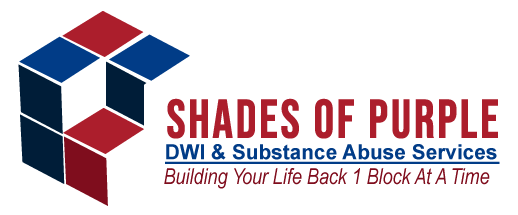
Alcohol and Drug Education Traffic School (ADETS)
ADETS
The Alcohol Drug Education Traffic School (ADETS) is an educational program for someone with a DWI conviction.
This program is for people who don’t have an identified substance abuse disorder but may be at risk for these disorders.
No diagnosis or only partial criteria are met, No statutory/administrative rule exclusions (Prior Convictions, Refusal, BAC of .15 or higher).
Services Required (at minimum): ADETS. Most first time offenders without a prior history of drug or alcohol abuse will fall into this category.
ADETS is recommended when:
- The assessment did not identify a substance abuse handicap;
- The person has no previous DWI offense conviction;
- The person had an alcohol concentration of 0.14% or less at the time of arrest;
- The person did not refuse to submit to a chemical test;
- The person meets the admission criteria for early intervention.

Short-term Outpatient Treatment
Short Term
The Short-term DWI program ranges from 20-39 hours. Remission Qualifier: Substance Use Disorder, Mild, Early or Sustained Remission Services required (at minimum).
This level of service requires at least 20 hours of education over the period of 30 days, and is required when:
- The assessment outcome suggests diagnosis of psychoactive substance abuse only (meaning there is no evidence of dependence or addiction);
- Prior to the assessment, the driver:
– Had an alcohol concentration of .15 or higher at the time of arrest
– Refused chemical test at time of arrest; - If revealed during the assessment, that the person has:
– Problems relating to family history of substance abuse;
– Other problems which seem to be a contributing factor to DWI behavior Short Term Treatment

Longer-Term Outpatient Treatment
Long Term
The Longer-term DWI program starts at 40 hours. Remission Qualifier: Substance Use Disorder, Severe, Early Remission Services required (at minimum).
Long-term outpatient treatment is usually advised when the driver shows signs of drug or alcohol dependence. Dependence occurs when a person moves
from the casual abuse or misuse of a substance to the physical need or reliance on the substance for daily function.
(2) If during the assessment, the client meets the criteria for Level I of the American Society of Addiction Medicine (ASAM) placement criteria, which defines substance dependence,
the assessment client’s level of service may fall into this category. Longer-term outpatient treatment requires a minimum of 40 contact hours over a minimum of 60 days.
- High resistance to treatment;
- Inability to abstain; and
- Lives in a negative and destructive environment
Each DWI case is different based on the unique history of each driver. It is important that anyone convicted of a DWI get the proper treatment and level of care he or she needs in order to prevent the dangerous consequences of drunk driving and substance abuse. This is why it is important to work with a qualified DWI substance abuse counselor that is skilled in administering DWI assessments. The right level of education or treatment can make all the difference.
Sources:
1. NC GS 10a NCAC 27g .3813:
Placement Criteria for Assessed DWI Clients
2. The Difference Between Substance Abuse vs Dependence vs Addiction, Absolute Advocacy.
This guest post is provided by Absolute Advocacy, North Carolina DWI substance abuse professionals and DWI assessment providers. To schedule an assessment or speak to a substance abuse counselor in North Carolina

Group Therapy
Group Therapy
A group of patients meet to describe and discuss their problems
together under the supervision of a therapist. Participants learn
and practice recovery strategies, build interpersonal skills, and
reinforce and develop social support networks.

DWI Assessment
DWI Assessment
A DWI Substance Abuse Assessment is an alcohol
abuse and drug abuse assessment consisting of an
interview by a Licensed or Certified Substance Abuse
Counselor and a structured assessment questionnaire to
determine if a person has a problem with alcohol or drugs.
What to Expect During an Addiction Assessment or Screening


